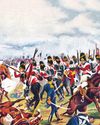
Wartime resistance movements that are dedicated to fighting or undermining invaders are quickly created during W times of conflict. People are compelled to act in ways they would never have imagined during times of peace and this was certainly the case during World War II, when these movements occurred in every occupied country. One of particular note was the Polish Resistance, and one of its soldiers, Stefan Dambski, was involved in carrying out sentences handed down by the Underground Courts from when he was aged just 16. Those who were accused included Polish collaborators, Germans, Ukrainians and, later, representatives of the puppet communist government.
Dambski's memoirs Egzekutor (Executioner) were written towards the end of his life and later published in Poland. They continue to cause controversy: on the one hand he's seen as an example of extreme sacrifice for his country, and on the other as a self-professed unemotional killer. Reading Dambski's recollections and reflections, we are compelled to question the price of wartime heroism and the limits of patriotism. We see that ultimately war damages or destroys anyone it touches on either side, and it is clear that over the years this anti-war message has only increased in significance.
The Poles go underground
The Polish Underground State was built in complete secrecy during the joint occupation by Germany and the USSR. Nowhere in occupied Europe was there an equally complex and effective organisation. Its most important task, alongside the organisation of underground activity, was to keep the Polish state functioning wherever possible. This included the maintenance of pre-war national institutions as well as making preparations to take back power once the war was eventually hopefully won.
Denne historien er fra Issue 110-utgaven av History of War.
Start din 7-dagers gratis prøveperiode på Magzter GOLD for å få tilgang til tusenvis av utvalgte premiumhistorier og 9000+ magasiner og aviser.
Allerede abonnent ? Logg på
Denne historien er fra Issue 110-utgaven av History of War.
Start din 7-dagers gratis prøveperiode på Magzter GOLD for å få tilgang til tusenvis av utvalgte premiumhistorier og 9000+ magasiner og aviser.
Allerede abonnent? Logg på

NAUMACHIA TRUTH BEHIND ROME'S GLADIATOR SEA BATTLES
In their quest for evermore novel and bloody entertainment, the Romans staged enormous naval fights on artificial lakes

OPERATION MANNA
In late April 1945, millions of Dutch civilians were starving as Nazi retribution for the failed Operation Market Garden cut off supplies. eet as In response, Allied bombers launched a risky mission to air-drop food

GASSING HITLER
Just a month before the end of WWI, the future Fuhrer was blinded by a British shell and invalided away from the frontline. Over a century later, has the artillery brigade that launched the fateful attack finally been identified?

SALAMANCA
After years of largely defensive campaigning, Lieutenant General Arthur Wellesley went on the offensive against a French invasion of Andalusia

HUMBERT 'ROCKY'VERSACE
Early in the Vietnam War, a dedicated US Special Forces officer defied his merciless Viet Cong captors and inspired his fellow POWs to survive

LEYTE 1944 SINKING THE RISING SUN
One of the more difficult island campaigns in WWII's Pacific Theatre saw a brutal months-long fight that exhausted Japan’s military strength

MAD DAWN
How technology transformed strategic thinking and military doctrine from the Cold War to the current day

BRUSHES WITH ARMAGEDDON
Humanity came close to self-annihilation with the Cuban Missile Crisis, Broken Arrows’ and other nuclear near misses

THE DEADLY RACE
How the road to peace led to an arms contest between the USA and USSR, with prototypes, proliferation and the world’s biggest bomb

THE MANHATTAN PROJECT
Einstein, Oppenheimer and the race to beat Hitler to the bomb. How a science project in the desert helped win a war